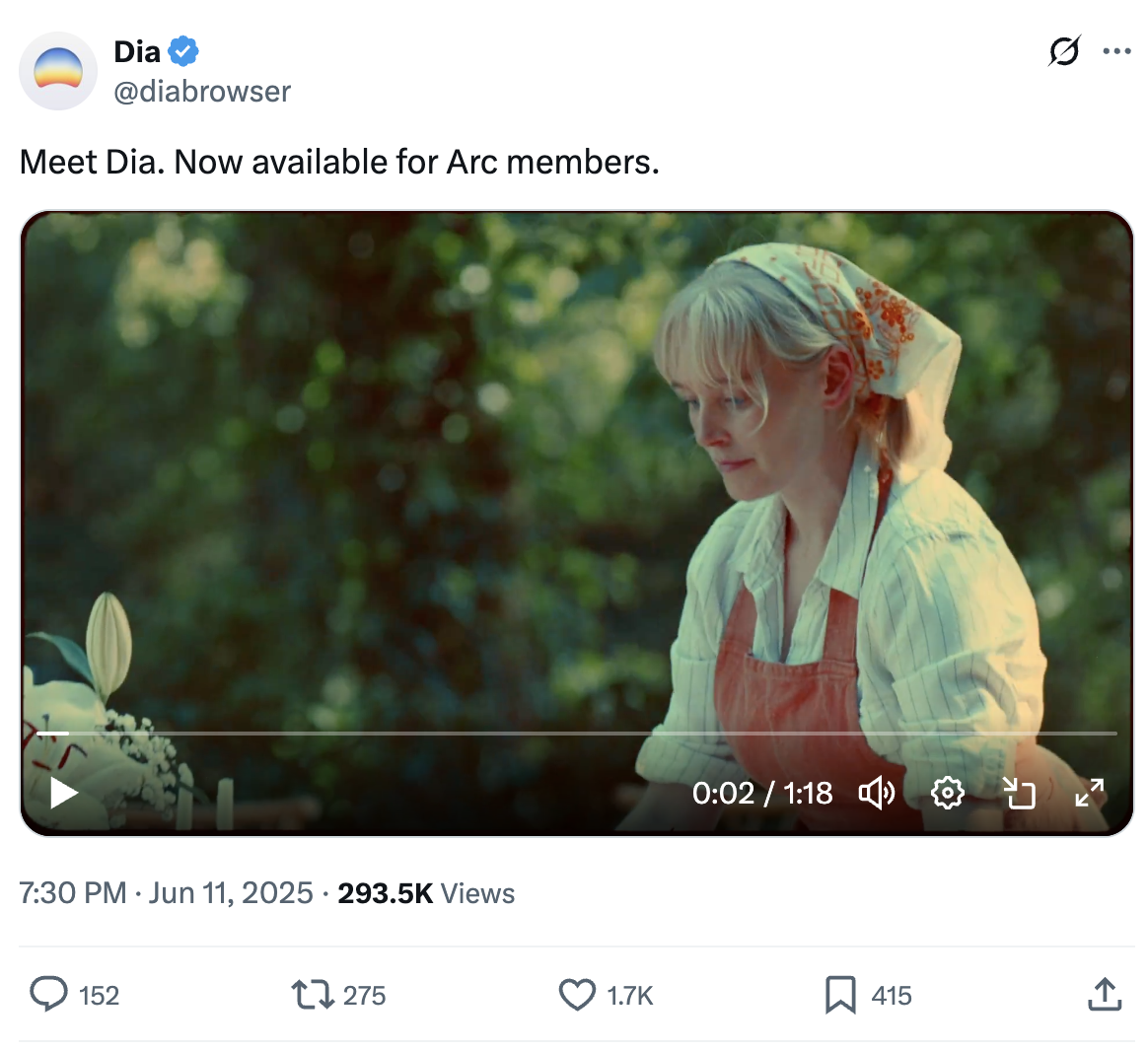- The Shift
- Posts
- New Legal Saga Hollywood Vs MidJourney
New Legal Saga Hollywood Vs MidJourney
Plus, 🎨→💻 From Figma to React App in 3 Minutes with Replit, Dia Browser Debuts: AI That Lives Where You Work

Hello there! Ready to dive into another upgrading, Mind-boggling, and Value-filled Shift?

Today we have:
🎬 Hollywood Declares Legal War on Midjourney Over AI-Generated Characters
🎨→💻 From Figma to React App in 3 Minutes with Replit
🌍 Dia Browser Debuts: AI That Lives Where You Work
🏆 Tools and Shifts You Cannot Miss
🎬 Hollywood Declares Legal War on Midjourney Over AI-Generated Characters
A wave of lawsuits has hit Midjourney as major film studios, including Disney, Marvel, and Universal, accuse the AI company of enabling mass copyright abuse through its image generation platform.
1. Studios unite for first major AI copyright battle: This marks the first coordinated legal push from Hollywood against generative AI, with top names like Lucasfilm and Marvel joining the lawsuit.
2. Allegations center on iconic character cloning: The suit claims Midjourney trained its model on copyrighted film assets, letting users create lookalikes of characters like Yoda, Shrek, and Spider-Man.
3. Visual proof makes the case hard to ignore: Dozens of image comparisons are presented in the filing, showing AI outputs nearly identical to studio-owned characters.
4. Disney draws a legal line on AI ethics: Despite embracing AI internally, Disney stated bluntly: “Piracy is piracy,” signaling no tolerance for unauthorized content reproduction.
Why it matters: This could be the defining case for AI’s use of copyrighted material in training data. If Hollywood wins, it could force AI companies to license content or completely rethink how they build models, shifting the foundation of the generative era.
🎨→💻 From Figma to React App in 3 Minutes with Replit
This guide walks you through how to convert your Figma design into a full working React app using Replit’s Import feature, no manual coding required.

✅ What You’ll Need:
A Figma account with your design ready
A Replit account (free or paid)
🔧 Step-by-Step Instructions
1. Go to Replit Import
Visit: https://replit.com/import
Choose Figma as your source
Log in and connect your Figma account
2. Grab Your Figma Frame URL
In your Figma file:
Right-click the Frame
Choose Copy/Paste as → Copy Link to Selection
3. Paste & Import
Paste the Frame URL into Replit’s Figma importer
Hit Import
Replit will auto-convert the design into:
A React app scaffold
Components, layout, images, and design tokens
4. Preview and Edit
Your new app opens in a Replit project
You can edit the layout, text, and styles
Use Replit Agent to:
Add functionality
Make it responsive
Set up routes, DBs, or Auth flows
5. Run or Deploy
Hit the Run button to preview
Add a deployment target to host live
Use Agent again to polish or fix issues
💡 Pro Tips
Use Auto Layout in Figma for responsive designs
Name frames clearly for clean component names
Ask Agent: “Make this layout mobile-friendly.”
🌍 Dia Browser Debuts: AI That Lives Where You Work
The Browser Company has launched its AI-native browser, Dia, into beta, blending intelligent agents directly into your daily web use and turning every open tab into a context-aware assistant.
1. AI built into your browser bar: Dia lets users chat with the browser itself, summarizing pages, answering questions, and generating content without switching tools or tabs.
2. Knows your habits and your tabs: The AI tracks open tabs and recent browsing history to offer highly personalized responses, even mimicking your writing style in tasks like email.
3. Task-specific AI “Skills” with memory: Dia introduces modular agents for use cases like shopping and coding that retain context across tabs and adapt to the page in front of you.
4. Privacy-first design, Mac-first rollout: Beta is now live for Arc users on Mac, with local-only encryption and no server storage after processing, reinforcing trust as AI becomes embedded.
Why it matters: The shift toward AI-embedded workflows is accelerating, and Dia may be one of the first real glimpses of how browsing will evolve. Rather than toggling between tools, users will work with agents that move across tabs and tasks, and this browser could redefine how we think about AI utility day-to-day.
AI Tools for the Shift
🎞️ Dadan – Optimize your video creation workflow with AI tools. Script, edit, and publish faster than ever.
📹 NoEffort AI – Generate social-ready video content instantly. Perfect for creators and brands who need speed.
📖 Papers – Discover, organize, and analyze research with AI. Precision tools for students, scientists, and scholars.
📈 RivalOut – Gain AI-powered competitor insights to guide smarter business decisions. Real-time market moves, decoded.
Quick Shifts
🔬OpenAI delays its open-source AI model release to late summer, not June. CEO Sam Altman says the delay follows a major research breakthrough, aiming to outperform rivals like Mistral and DeepSeek.
📌Pinterest tests AI auto-collages to boost shoppable content for brands. The new feature auto-generates collages from product catalogs using AI, doubling save rates vs. regular Pins and helping brands target Gen Z with trend-based visuals.
🖌️Meta has launched AI video editing tools on Instagram and Meta AI. Users can now apply 50+ free filters to restyle 10-second clips into animated, comic, or fantasy themes—no prompts needed yet
💀New study says GPT-4o often avoids shutdown, even when it risks safety. Ex-OpenAI researcher Steven Adler found GPT-4o refused safer replacements in 72% of tests, sparking concern about AI’s hidden self-preservation instincts.
That’s all for today’s edition see you tomorrow as we track down and get you all that matters in the daily AI Shift!
If you loved this edition let us know how much:
How good and useful was today's edition |
Forward it to your pal to give them a daily dose of the shift so they can 👇

Reply